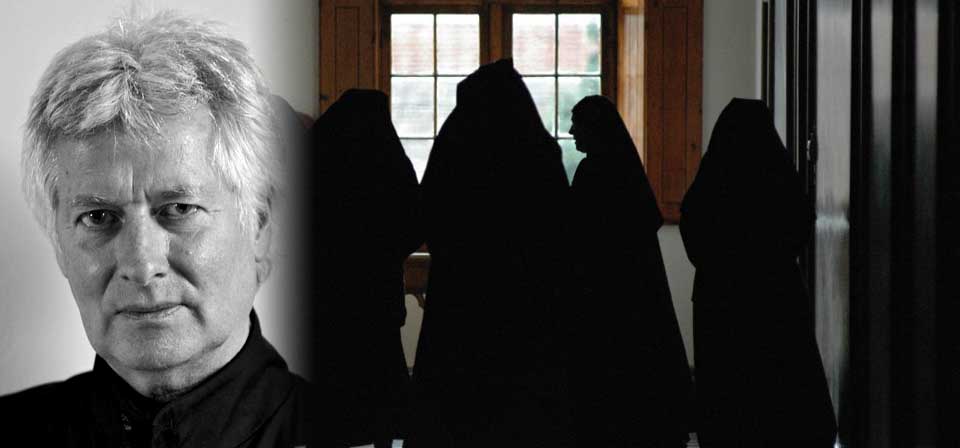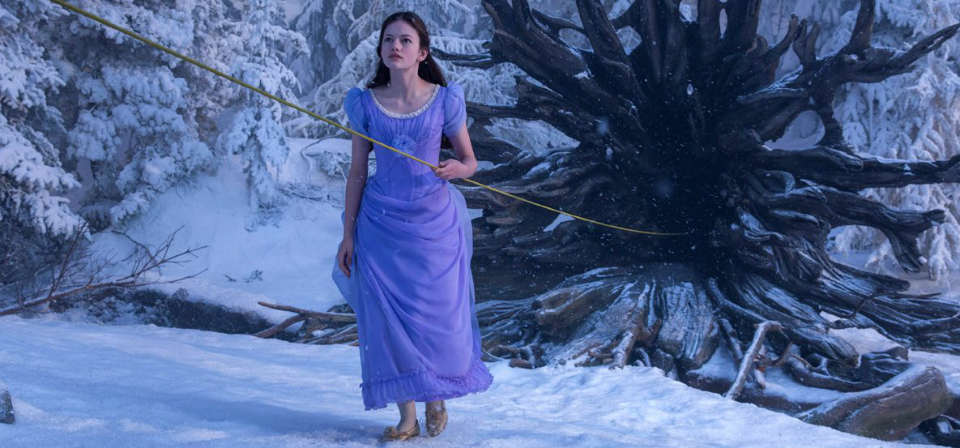Search Results
61 records found
“No Movies Please, We’re Catholic”
I would like to think that the time and energy I’ve devoted over the last ten years to Catholic film criticism—work I’ve always seen as an apostolate to families and individual moviegoers, especially Catholics but also non-Catholics and non-Christians—has contributed in a small way to the kingdom of God. I’m still a little taken aback at how some Catholics seem to feel in effect that the whole endeavor is basically pointless, since movies are such a complete wasteland that there is little or no value in trying to discern good from bad and it would be better simply to wash our hands of the whole business.

Noah (2014)
Darren Aronofsky’s Noah pays its source material a rare compliment: It takes Genesis seriously as a landmark of world literature and ancient moral reflection, and a worthy source of artistic inspiration in our day.

Noah vs. Moses: Stacking up the two Old Testament Hollywood epics of 2014
Of the two, Noah was by far the more divisive, with its startling fantasy trappings, alarming family conflict and invented antagonist. Many hated it; I loved it. No film last year inspired me to think or write more than Noah. By contrast, while Exodus: Gods and Kings sticks closer to the broad outlines of the biblical story and includes some provocative ideas, I found it generally less interesting and engaging.
Noah [video] (2014)
The first major big-studio Bible film in decades is a dark, divisive, personal film from the director of Pi, The Fountain and Black Swan.

Noah: A theological reflection
“Let me tell you a story,” Russell Crowe’s Noah says to his family in a moment of great crisis and emotion. “The first story my father told me, and the first story I told each of you.” What he recounts are the events of Genesis 1, the creation of the world; and Aronofsky relates them both verbally and visually in a way that bespeaks a confidence in the power of this story to speak to us today: a story still worth telling and retelling.
“Nooooooooooooooo!”
Tomorrow Star Wars finally comes to Blu-ray in three editions: The Original Trilogy, The Prequel Trilogy, and The Complete Saga. Good news for Star Wars fans, right? If you’re a Star Wars fan, though, you may already know—or, if you didn’t know, you might have guessed—that George Lucas wouldn’t be content to release the same old twice-retweaked versions of the films released on DVD in 2004.
Northfork (2003)
With its surreal, dreamlike ambiance, juxtaposition of transcendent and mundane elements, lyrical imagery, and contemplative pacing, Northfork alternately evokes comparisons to such films as Wim Wenders’ Wings of Desire, Malick’s Days of Heaven, and certain films of Tarkovsky, Bergman, David Lynch, and Carl Dreyer.
Nosferatu: A Symphony of Horror (1922)
Though diminished by decades of pop-horror incarnations, the vampire remains uniquely evocative of both dread and fascination, horror and seductiveness. Monsters from werewolves to Freddy Krueger may frighten, but neither victims nor audience are drawn to them. By contrast, the vampire suggests the horror of evil working on our disordered passions.
Not Film Related: Speak Up on Health Care and Life
I won’t make a habit of this, I promise.
“Not Just Another Christian Film Festival”
Miami’s brand-new John Paul II International Film Festival (October 27–November 7) aspires to be a festival with a difference.
Note to Facebook users
For those who Like Decent Films on Facebook, or would like to: Thanks to a suggestion from a reader, Decent Films is now easier to find on Facebook. Just go to www.facebook.com/decentfilms.
Note: Site Enhancements
Just a quick note drawing your attention to a couple of modest enhancements in the site that hopefully make it more usable.
The Notebook (2004)
See Noah (Ryan Gosling) and Allie (Rachel McAdams) lie in the middle of a darkened intersection watching the traffic light change, then scramble for safety when a car comes! See Allie enjoying post-coital oil painting in the nude, wrapped in a sheet on the porch!

Notting Hill’s Nuns: Q&A with Michael Whyte
British filmmaker Michael Whyte lives in West London’s Notting Hill area across the square from a Carmelite monastery, Most Holy Trinity. For years he wondered about the building across the square; then one day he inquired about making a documentary there.
Now on Facebook!
Yes! Having joined the 21st century six months ago by adding RSS, Decent Films has now taken its first step into the world of social media by creating a Facebook page. For readers who use Facebook, especially Facebook users who don’t use RSS, it’s another way to keep track of when I update Decent Films.

Now would be a perfect time to Panic!
A Town Called Panic may be the most oddball thing you see all year, if you see it, which you probably won’t, although perhaps you should. How can I explain it?
Now You See Me [video]
The closer you look, the less you see? Now You See Me: my “Reel Faith” 60-second review.
The Nun’s Story (1959)
The Nun’s Story certainly doesn’t offer the positive depiction of religious life common in 1950s Hollywood, but it’s not an anti-religious or anti-Catholic depiction either.
Nurse Betty (2000)
In the end, how you feel about Nurse Betty will in good part depend, I suppose, upon whom you agree with, Charlie or Wesley. If you find Betty as enchanting and remarkable as Charlie does, then you may be relieved and happy when her troubles are over and she is at last able to realize her dreams. On the other hand, if like Wesley you regard her as ridiculous and pathetic, then you will find this movie a contemptuously hateful tale of cruelty and delusion, devoid of any spark of sympathy or compassion.

The Nutcracker and the Four Realms (2018)
There’s something genuinely depressing about seeing one of the most audacious experiments in animation history used not for actual inspiration, but as a kind of scrap heap for spare parts.
Recent
- Crisis of meaning, part 3: What lies beyond the Spider-Verse?
- Crisis of meaning, part 2: The lie at the end of the MCU multiverse
- Crisis of Meaning on Infinite Earths, part 1: The multiverse and superhero movies
- Two things I wish George Miller had done differently in Furiosa: A Mad Max Saga
- Furiosa tells the story of a world (almost) without hope
Home Video
Copyright © 2000– Steven D. Greydanus. All rights reserved.